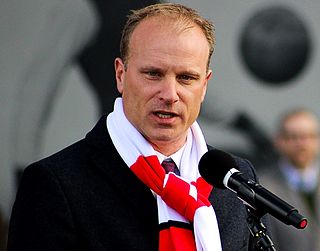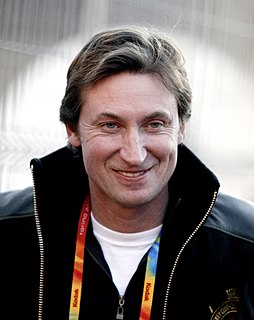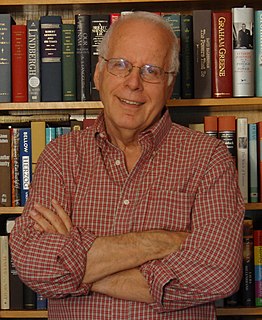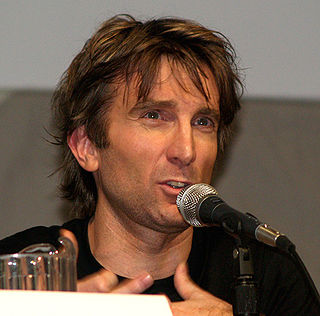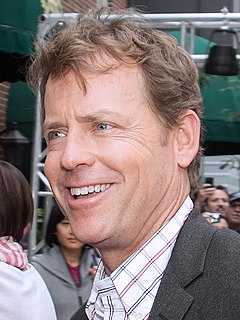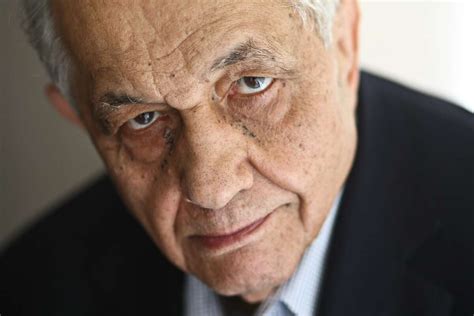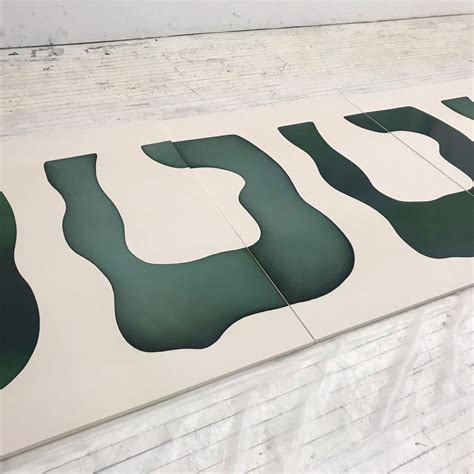A Quote by Dennis Bergkamp
When I played in Holland, I always tried to lob the goalkeeper. People used to say, 'Oh, you're always only trying to make a nice goal'. But I said, 'Listen, if the goalie is a little bit off his line, how much space do you have on his left or right?' It's not a lot. 'And how much space do you have above him?
Related Quotes
When I played in Holland, I always tried to lob the goalkeeper. People used to say, 'Oh, you're always only trying to make a nice goal'. But I said, 'Listen, if the goalie is a little bit off his line, how much space do you have on his left or right?' It's not a lot. 'And how much space do you have above him?'
I have recall. I don't know why or how. I had a guy once who said he played against me in novice [league, for kids under nine], for the Detroit Lasers. And I said, "Oh yeah, we beat you in the tournament, 8-1 and I think I scored seven goals, and the goalie was left-handed." And he was, "Oh my God. I was the goalie!" .
I'm friends with a lot of writers and so many of them say how much they hate signings and how they leave after a certain period of time. But what is so hard about sitting there while people tell you how much they love you? And if you don't like it, well, learn to like it. I try to take one person at a time. I never look down the line to see how many more people are left. And I always try to make people talk about something besides whatever they planned to say.
Editors can be stupid at times. They just ignore that author's intention. I always try to read unabridged editions, so much is lost with cut versions of classic literature, even movies don't make sense when they are edited too much. I love the longueurs of a book even if they seem pointless because you can get a peek into the author's mind, a glimpse of their creative soul. I mean, how would people like it if editors came along and said to an artist, 'Whoops, you left just a tad too much space around that lily pad there, lets crop that a bit, shall we?'. Monet would be ripping his hair out.
There are a lot of people that have marginal powers, like a guy who levitates a little bit off the ground, or someone who can breathe a little bit of fire, or someone that can freeze a little bit of something, if it's really close to him, you say, "Well, what do you do with that? How is that useful?" There is so much of it around you and you're seeing it, it becomes the important thing in society.
There was only so much space between us, not even a real distance if measured in miles or feet or even inches, all the things that told you how far you'd come or had left to go. But it was a big space, if only for me. And as I moved forward to him covering it, he waited there on the other side. It was only the last little bit I has to go, but in the end, I knew it would be all I would truly remember. So as I kissed him, bringing this summer and everything else full circle, I let myself fall, and was not scared of the ground I knew would rise up to meet me.
Regardless of the weight of the role, I feel like the job is always kind of the same. Who is this person? What's this guy here, what's he trying to say? And what's the volley with all these other people around him? So I don't feel like that part of it changes. I have not reached the point - if there's a point you reach as an actor where it's, "Oh, I got this figured out, I know how to do this". But I am happy to say that the primary building blocks of where you start, at least, there is a little bit of sameness to that. And that's always nice.
I don't think so much about verbal comedy. I always think about visual comedy. I was raised watching silents, and I'm always thinking about how to make cinema, not good talking - although I want good talking. I'm much more interested in framing, composition, and orchestration of bodies in space, and so forth. My goal is always what Chuck Jones wanted his Warner Brothers cartoons to be, which was if you turn down the sound, you could still tell what's going on. I think if you watch most of my films with the sound off, you could still tell what's going on.
I always think about visual comedy. I was raised watching silents, and I'm always thinking about how to make cinema, not good talking - although I want good talking. I'm much more interested in framing, composition, and orchestration of bodies in space, and so forth. My goal is always what Chuck Jones wanted his Warner Brothers cartoons to be, which was if you turn down the sound, you could still tell what's going on.
Development of the space station is as inevitable as the rising of the sun; man has already poked his nose into space and he is not likely to pull it back . . . . There can be no thought of finishing, for aiming at the stars-both literally and figuratively-is the work of generations, and no matter how much progress one makes, there is always the thrill of just beginning.
On one level, I'm interested in how the space dictates the effect visually - how the composition of a given work changes depending on the nature of each wall. But I'm also trying to emphasize less tangible elements: the amount of time it takes to walk the gallery's perimeter; how one's physical distance affects his or her sense of the overall composition; how the size of the space creates a sense of visual rhythm. It's really a matter of seeing how much structure is necessary to impose for those things to become apparent.
